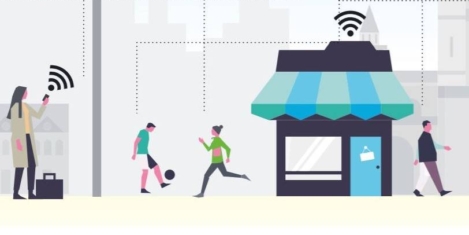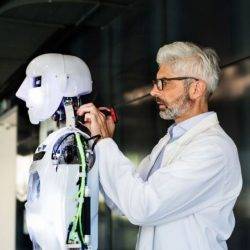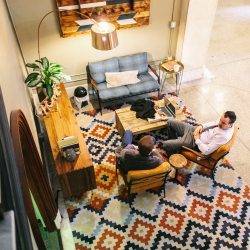November 16, 2017
Fear of change is putting British companies at risk, Microsoft report claims
 A fear of change among staff is putting British companies at risk, according to new research that looks at how businesses are preparing for a technology-led future. A significant number of workers from across the UK admitted to anxiety and concerns over job security when their firms introduced technology to help them in their roles. Just under half (49 percent) of the people surveyed by Microsoft, Goldsmiths, University of London and YouGov said they feared the change that comes with digital transformation. Sixty-one percent said they felt anxious when bosses brought in new technology, while 59 percent were worried about the impact the automation of tasks would have on their job.
A fear of change among staff is putting British companies at risk, according to new research that looks at how businesses are preparing for a technology-led future. A significant number of workers from across the UK admitted to anxiety and concerns over job security when their firms introduced technology to help them in their roles. Just under half (49 percent) of the people surveyed by Microsoft, Goldsmiths, University of London and YouGov said they feared the change that comes with digital transformation. Sixty-one percent said they felt anxious when bosses brought in new technology, while 59 percent were worried about the impact the automation of tasks would have on their job.




















 Over half (52 percent) of people who work remotely feel their colleagues don’t treat them equally, claims a new study. Working remotely has become a highly sought-after job perk and having the flexibility to live and work where you please, regardless of corporate headquarters, often draws people to take one job over another. But a survey from VitalSmarts produced by David Maxfield and Joseph Grenny, authors of the bestsellers Crucial conversations and Crucial Accountability, found that remote employees have a significantly harder time with a number of workplace challenges than their onsite colleagues. 67 percent of remote employees complained that colleagues didn’t fight for their priorities compared 59 percent of onsite employees. 41 percent of remote employees believed colleagues say bad things about them behind their back compared to 31 percent of onsite employees and 64 percent of remote employees had changes made to a project without warning vs. 58 percent of onsite employees. Over a third (35 percent) of remote employees thought colleagues were lobbying against them vs. 26 percent of onsite employees.
Over half (52 percent) of people who work remotely feel their colleagues don’t treat them equally, claims a new study. Working remotely has become a highly sought-after job perk and having the flexibility to live and work where you please, regardless of corporate headquarters, often draws people to take one job over another. But a survey from VitalSmarts produced by David Maxfield and Joseph Grenny, authors of the bestsellers Crucial conversations and Crucial Accountability, found that remote employees have a significantly harder time with a number of workplace challenges than their onsite colleagues. 67 percent of remote employees complained that colleagues didn’t fight for their priorities compared 59 percent of onsite employees. 41 percent of remote employees believed colleagues say bad things about them behind their back compared to 31 percent of onsite employees and 64 percent of remote employees had changes made to a project without warning vs. 58 percent of onsite employees. Over a third (35 percent) of remote employees thought colleagues were lobbying against them vs. 26 percent of onsite employees.


 The future workplace will replace familiar, rigid hierarchies and departments with small, collaborative networks of teams and the lines between individual organisations and ecosystems will blur as companies increasingly cast their net wider to innovate. This is one of the predictions made in a Fujitsu-commissioned whitepaper ‘
The future workplace will replace familiar, rigid hierarchies and departments with small, collaborative networks of teams and the lines between individual organisations and ecosystems will blur as companies increasingly cast their net wider to innovate. This is one of the predictions made in a Fujitsu-commissioned whitepaper ‘




















November 16, 2017
Astonishing Uber employment case could lead to fresh battles over gig economy
by Philip Richardson • Comment, Flexible working, Legal news, Technology
More →